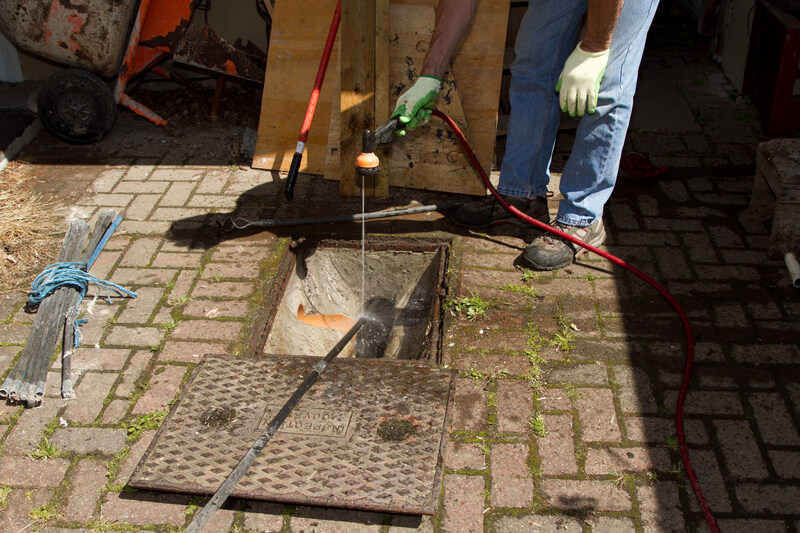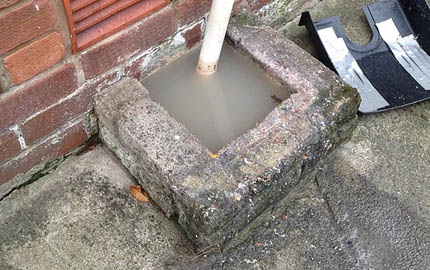Guidelines for Managing a Blocked Drain Before Calling Professional Plumbers
Guidelines for Managing a Blocked Drain Before Calling Professional Plumbers
Blog Article
They are making a few good annotation on the subject of How to handle a clogged drain in your home overall in this great article below.

Introduction
Dealing with a blocked drain can be a frustrating experience, interfering with daily activities and possibly creating damages to your building. However, before connecting to plumbing specialists, there are steps you can require to resolve the concern on your own. In this overview, we'll discover DIY services and preventive measures to tackle a blocked drainpipe efficiently.
Recognizing the Issue
The primary step in addressing an obstructed drainpipe is acknowledging the indicators. Slow-moving drainage, gurgling audios, foul odors rising from drains pipes, or water support up prevail indicators of an obstructed drain. Recognizing these indications early can aid stop further issues.
Common Sources Of Blocked Drains
Understanding the factors that contribute to drain clogs is important for effective resolution. Typical wrongdoers consist of hair, soap scum, oil, food particles, and foreign things like hygienic products or paper towels. Tree origins invading below ground pipes can also create considerable blockages.
Do it yourself Solutions
For minor obstructions, numerous do it yourself services can be efficient. Pouring boiling water down the drain can aid liquify oil and debris. Baking soda and vinegar or a mixture of salt and cooking soft drink can act as natural cleaners. Utilizing a bettor or plumbing snake to remove obstructions is another alternative.
Devices and Tools
Having the right tools handy can make DIY drain cleaning up a lot more effective. A plunger is a versatile tool for removing clogs in sinks, bathrooms, and showers. A pipes serpent or auger can reach deeper obstructions, while drain cleaning chemicals can be utilized carefully for persistent blockages.
Preventive Measures
To prevent future clogs, embracing preventive measures is crucial. Set up drain guards or strainers to catch hair and debris prior to they enter the pipes. Regularly flush drains with warm water to liquify oil accumulation, and stay clear of dealing with grease or strong waste down the drain.
When to Call an Expert
While do it yourself remedies can settle small clogs, certain indicators show the need for expert help. Consistent clogs, foul odors in spite of cleaning initiatives, or multiple drains pipes supporting simultaneously are warnings that require experienced treatment.
Picking the Right Plumbing Solution
When selecting a pipes service, take into consideration factors such as experience, licensing, and consumer evaluations. Pick a reputable plumber with a record of quality craftsmanship and transparent pricing techniques.
Expense Factors to consider
The price of specialist drain cleaning company can differ depending upon the intensity of the blockage and the plumbing technician's rates. Demand quotes from several carriers and ask about any type of surcharges to ensure openness and stay clear of shocks.
Safety Measures
When trying do it yourself drainpipe cleaning, focus on security. Use protective gloves and glasses to prevent contact with harmful chemicals or germs. Never blend different drain cleaning items, as this can produce unsafe fumes.
Situation Studies
Real-life examples show the effectiveness of DIY remedies and the importance of timely expert intervention in fixing drain blockages.
Final thought
By adhering to the tips laid out in this guide, you can properly take on blocked drains and prevent future pipes issues. Whether selecting DIY remedies or looking for expert help, prompt activity is crucial to preserving a healthy pipes system and preserving the honesty of your home.
How to Clear a Clogged Drain Yourself (And When to Call In the Professionals)
What Can Clog a Drain
Dirt Skin flakes Hair Grease Soap scum Food Offset pipes Tree roots Small objects Mineral buildup DIY Tricks to Unclog a Drain
You can fix this! Once you have identified the source of the clog (or have a vague idea), you can try one or a combination of these fixes in order to clear your plumbing.
Wire Hanger or Snake
Untangle and clear out hair from a drainpipe with a homemade snake. Use a straightened-out wire hanger with a 90-degree angle hook to locate the clog and drag out any unwanted material.
Remember not to push the clog further down to where the wire hanger cannot reach! If you need to follow up with a plunger, give it a try. Your efforts might be more successful after it’s been wire-snaked.
If you want to get fancy and don’t have a wire hanger to spare, head to the store and pick up a hand-operated drain snake. You can get one for $10-$30. It may save you the hassle, and provide additional length to reach deep into the clogged pipe.
Plunger
A cup plunger has a suction cup attached to a wooden handle. The rubber creates a seal around the drain, and increases the pressure force of the plunger.
Plunge for 30-second increments to loosen the clog. This may need to be repeated over the course of 15-20 minutes. Once plunged, run the water to flush the remaining material out of the drain.
Remember– never use a plunger if you have used a chemical drain cleaner. These chemicals can splash up from the force of the plunger and cause serious injury or burns.
Boiling Water
Hot water can sometimes break up materials into a flushable amount. Dirt, grease, and soap buildup requires heat in order to unstick from surfaces.
Take your kitchen kettle and heat your water to a boil. Once it reaches a rolling boil, pour it directly down the drain into the blockage. Carefully follow with plunging, if necessary.
Don’t worry if this takes more than one try! It can often take multiple kettles and repeated plunging in order to clear a particularly stubborn clog.
Chemical Drain Cleaner
As a last resort, pick up a bottle of chemical drain cleaner. Drain-cleaning chemicals are potent, and not very good for the environment.
You may need to wear protective eyewear in gloves before handling your bottle of chemical drain cleaner. Follow the instructions printed on the bottle, and flush with water as soon as the instructions allow. Do not follow with plunging.
Baking Soda and Vinegar
As a safer alternative to chemical drain cleaner, baking soda and vinegar can create a chemical reaction that clears tough clogs.
Combine one cup of cleaning vinegar with one cup of boiling water, and set aside. Once you have done this, pour half a cup of baking soda down the drain. Give the baking thirty seconds to settle and cover a large portion of the problem drain.
Following the baking soda, pour down your vinegar and hot water solution. Once the vinegar and baking soda combine, the mixture will bubble and fix. Let this reaction fizzle in the drain for about an hour.
After an hour, follow with a kettle’s worth of hot water. The heat and liquid should flush out any remaining material.
When to Call a Plumber
If your DIY attempts haven’t cleared your clog drain, it’s time to call in a professional. It’s not worth losing access to your kitchen sink or high-traffic bathroom. A clog in a vital area can keep you from the things you’d rather be doing, and derail your routine.
Anytime a clog is causing water to spread is a time to call in a plumbing service. What starts out as a little bit of water can quickly grow into serious, expensive water damage.
Additionally, a serious clog can result in burst pipes or serious leaks. Make sure you know when to take it seriously!
https://myguysnow.com/how-to-clear-a-clogged-drain-yourself-and-when-to-call-in-the-professionals/

As a fervent person who reads about , I thought sharing that piece was worthwhile. So long as you enjoyed reading our article if you please make sure you remember to pass it around. We recognize the value of reading our article about Tips for Dealing with Clogged Drains and Sewer Lines.
See Availability Report this page